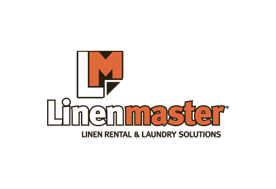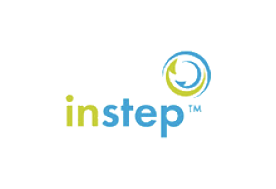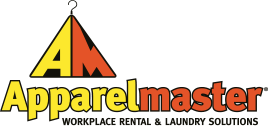

La Nuova laundry focuses on sustainability
MONDAY, NOVEMBER 19 2012 || SUSTAINABLE 60 || BY MARIA SLADE, BUSINESS DAY
Not many firms can boast their own worm farm.
Feeding scraps to the plant's resident worms is one small example of how sustainability-focused people at Taranaki industrial laundry and drycleaning company La Nuova Apparelmaster have become. "We caught the bug," operations manager Bevan Broughton says.
Environmental awareness is so embedded in the company's culture that staff came up with their own initiative to help reduce "plastic soup" - the enormous and devastating field of plastic pollutants trapped in the North Pacific Ocean by ocean currents.
Broughton and fellow managers had seen a presentation on the problem and were telling staff about it one morning at their regular meeting.
Although La Nuova had already dramatically reduced its plastic usage, its continuous towel rolls were still plastic-wrapped. Staff tossed around some ideas and an improvement project was started. The answer was to replace the plastic with biodegradable rubber bands sourced from a Lower Hutt firm.
The company's focus on sustainability was initially about saving money and creating a marketing point of difference, Broughton says. Now it's like health and safety or turning a profit - it is included right into the decisionmaking process.
The Craig family set up dry cleaning business La Nuova in Hawera in 1959. Italian for "the new one", it was named after the early drycleaning machines the family imported from Italy. Current sales manager Brad Craig is the third generation to be involved in the business.
It has always been a quality systems-based company and has been ISO registered for many years, Broughton says.
Then it discovered competitive or lean manufacturing. "I got so frustrated with how over-complicated [ISO] was, filling out forms for the sake of forms.
"I kind of thought if we got lean-involved, plus still kept the discipline of ISO, it would be a really good mix."
How the firm operates today is definitely a blend of the two, he says. It encourages all employees to gain the NZQA level two competitive manufacturing qualification, and by implementing lean it has improved staff productivity by 100 per cent in five years.
Then Brad Craig returned from his OE. His father, Gordon, and Broughton were having dinner one night and got talking to the younger Craig and his mates about sustainability issues.
"We were astounded at how much they knew, and how much we didn't know. We went ‘wow, this actually makes a lot of sense'. It fitted in well with where we were going with lean as well."
The "La Nuova Way" is all about the environment. The firm rents most of its products to customers - such as uniforms, linen and tea towels - and the items go through a lifecycle. Towels start out as A grade for top hotels, then are used in motels and rest homes, then by sports teams, and eventually become rags.
It uses steel coat hangers and encourages their return, compostable biofilm to wrap garments and reusable bags for duvets and furnishings, and cornflour instead of starch. Its drycleaning solvents are put through a process that enables them to be safely disposed of in a landfill, and the company will install zero waste drycleaning machines next year.
"Planning is something we do a lot of," Broughton says. The company has very specific aims, including becoming a trainer of choice for the laundry industry.
It has done a bit of external training so far, but wants to develop a more user-friendly sustainability model. All this green stuff is too complicated for many SMEs, he says.
"We'd like to come up with an idea that people can have a simple version. What little things can I do to make a difference now and integrate it, rather than try and have a sustainability policy straight out. Let's just learn about turning off lights and not wasting power."
La Nuova's emphasis on efficient energy use has reaped significant benefits. When it implemented its first energy saving project four years ago it cut usage by 35 per cent. "For us, we're a high energy user, it was massive."
However it's an ongoing effort, as its product mix has changed since then and its fastest-growing markets are the more energy-intensive ones, the operations manager says.
The firm has also learned a lot about fuel usage. Paying attention to things like vehicle idling time "can save $200 to $300 a week really quickly".
"It still astounds me that we've got a Prius here, and a lot of our vehicle purchasing is done on fuel usage," Broughton laughs.
La Nuova's culture also helps with staff retention. It can't compete with the salaries being offered by Taranaki's buoyant dairy and oil and gas industries, so it instead tries to create a good place to work. The firm has been known to put in extra hours so everyone can have the day off for a Ranfurly Shield match.
It's also about finding people who fit in. La Nuova will not sacrifice culture for political correctness, Broughton says. Managers can find themselves folding pillow slips or rolling mats when the chips are down.
"At times it's high pressure, and in the middle of summer it's a very hot environment, and we like to have a crew that get on really well and when our backs are against the wall we get stuck in.
"It's a pretty proud moment, to be honest, they're buggers of days."
La Nuova is clear that its market is Taranaki and has no plans to expand further afield. "We've kind of turned it the other way, being able to do a bit of everything is a good thing for us."
FACTBOX
La Nuova Apparelmaster Taranaki industrial laundry and dry cleaning business.
Processes between 20 and 30 tonnes of laundry a week.
Employs about 30 people in laundry business.
Turnover $4.18 million last year.
Finalist in the 2012 Sustainable 60 Awards.
Our Partners





